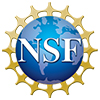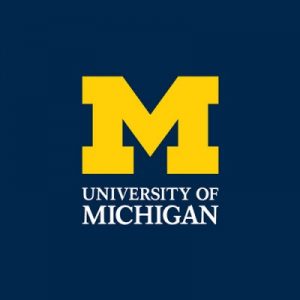Partners
 The National Science Foundation (NSF) is an independent federal agency created by Congress in 1950 “to promote the progress of science; to advance the national health, prosperity, and welfare; to secure the national defense…” NSF is vital because we support basic research and people to create knowledge that transforms the future. This type of support:
The National Science Foundation (NSF) is an independent federal agency created by Congress in 1950 “to promote the progress of science; to advance the national health, prosperity, and welfare; to secure the national defense…” NSF is vital because we support basic research and people to create knowledge that transforms the future. This type of support:
- Is a primary driver of the U.S. economy
- Enhances the nation’s security
- Advances knowledge to sustain global leadership
With an annual budget of $7.8 billion (FY 2018), we are the funding source for approximately 27 percent of the total federal budget for basic research conducted at U.S. colleges and universities. In many fields such as mathematics, computer science and the social sciences, NSF is the major source of federal backing.

The core quantitative analysis will be conducted using the rich datasets at The Institute for Research on Innovation and Science (IRIS), University of Michigan, contributing to their development. These datasets provide detailed information about science and engineering students from university administrative records that are linked to employment and other survey data (LEHD, Census). It includes the enhanced STAR microdata for multiple Committee on Institutional Cooperation (CIC) universities. These data will allow for a broad and in-depth examination of students’ educational and career trajectories, particularly among students employed on funded research projects. Analysis of other data sets (B&B/BPS from NCES; SESTAT) will provide initial pathways analysis and inform development of the IRIS data.
 The Yankelovich Center for Social Science Research, University of California San Diego is working as a collaborator on the university and firm case studies. They are conducting surveys and interviews with students on their decision making about majors and careers, as well as interviews with faculty, staff and advisors. They are also conducting interviews with employers in the local labor market about hiring practices and pathways in science and engineering careers. Working closely with Rutgers researchers, they are contributing to the analysis of student pathways and the role of undergraduate research experience.
The Yankelovich Center for Social Science Research, University of California San Diego is working as a collaborator on the university and firm case studies. They are conducting surveys and interviews with students on their decision making about majors and careers, as well as interviews with faculty, staff and advisors. They are also conducting interviews with employers in the local labor market about hiring practices and pathways in science and engineering careers. Working closely with Rutgers researchers, they are contributing to the analysis of student pathways and the role of undergraduate research experience.

Howard University’s political science department is contributing to the project by conducting surveys and interviews with students, faculty, and industry. It will draw on its subject matter expertise in engineering labor markets to focus on majors and career pathways for engineering and computer science students.